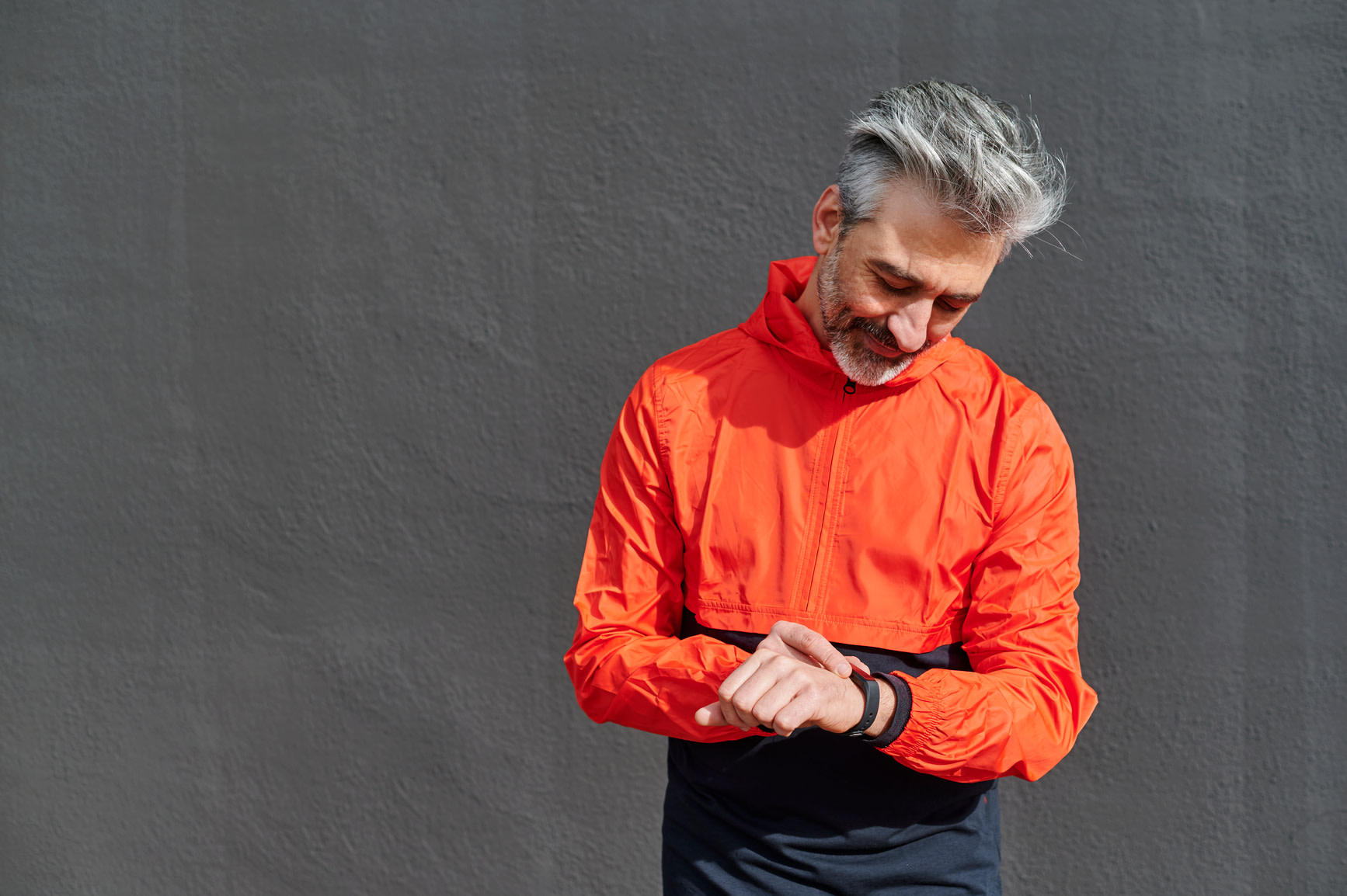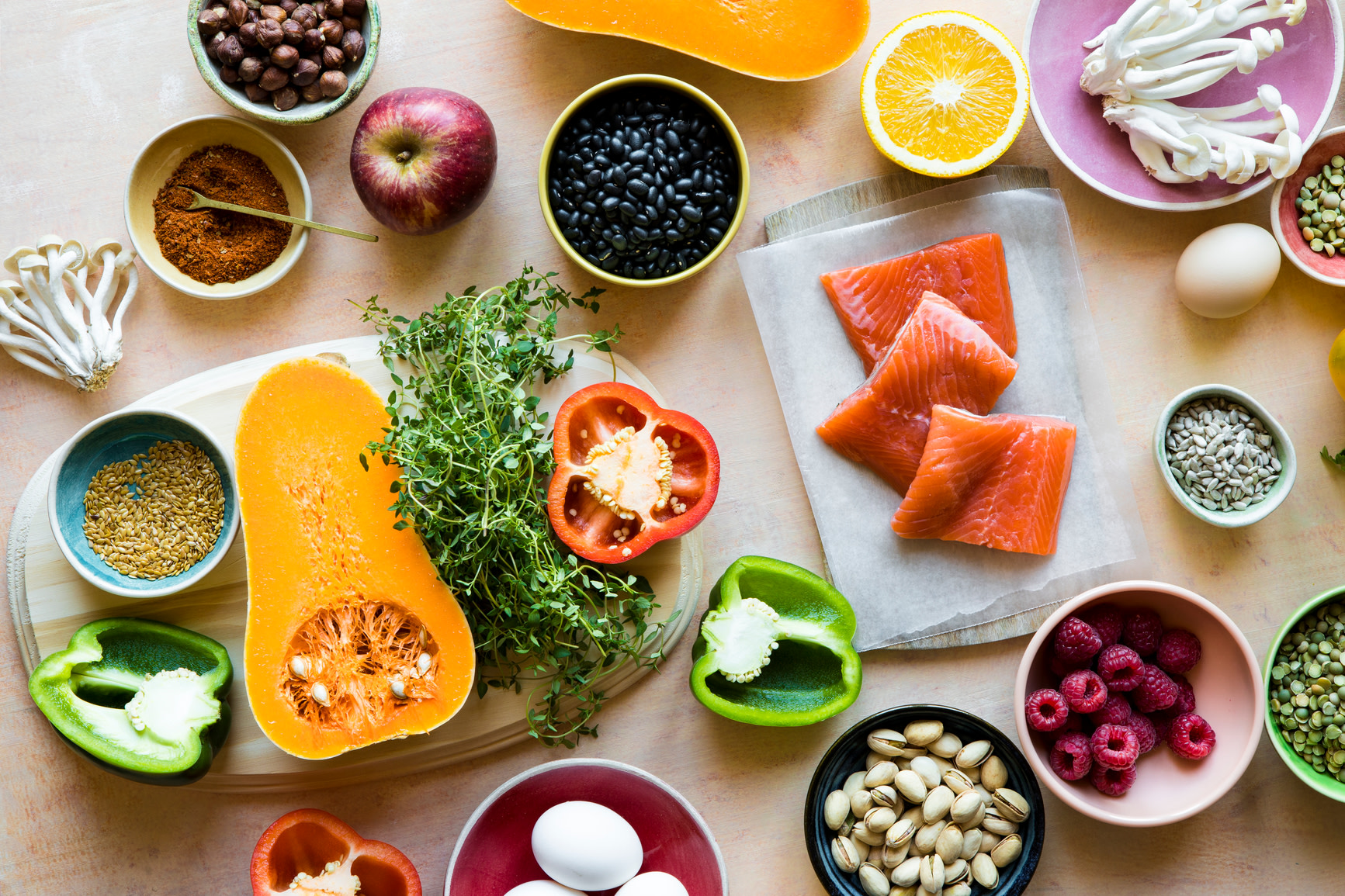
How Long Should You Wait to Exercise After Eating?
It’s time to set the record straight about when and how to snack before you sweat.
By Karla Walsh•
Why You Should Avoid a Big Meal Right Before a Workout
How Long Should You Wait to Exercise After Eating?
How Meal Timing Can Help—or Hurt—Your Workout
What Should You Eat Before a Workout?
During summer as a kid, you were probably warned time and time again that “you better wait 30 minutes after eating before swimming!” While the jury is out on where exactly this myth came from (doctors have confirmed that you really need not sweat about the exact schedule of your pre-swim snacks), generations of us are now feeling quite fuzzy about the ideal timing related to eating and exercise. How long should you wait to exercise after eating? Do you really need to wake up hours before your a.m. ride or run to fuel up and digest?
Ahead, dietitians explain exactly how to properly fuel for your workout and time your meals so you can make the most of every minute of your sweat session—without bonking, cramping, or feeling queasy.
Why You Should Avoid a Big Meal Right Before a Workout
Eating a large meal too close to exercise can definitely impact how you feel each pedal stroke, step, or rep, confirms Natalie Rizzo, MS, RD, a plant-based sports dietitian with Greenletes in New York City and the author of Planted Performance. That’s because the moment you start exercising, your blood begins to flow away from your digestive system and towards your hard-working muscles.
“If you eat a large meal too close to the start of a workout, especially foods that take longer to digest [including protein and fat], you can experience cramps, sluggishness, or a brick-sitting-in-your-stomach feeling,” says Cynthia Sass, MPH, MA, RD, CSSD, a board-certified sports dietitian in private practice in Los Angeles who has consulted for five pro sports teams and works with athletes privately. “Plus, if the food didn’t have time to get broken down and absorbed, it won’t be available to fuel your muscles,” she explains. “This can result in under-fueled cells and an upset stomach; the recipe for a miserable workout.”
But not eating enough before a workout can also be a serious issue. Roxana Ehsani, MS, RD, CSSD, a Miami-based board-certified sports dietitian, always advises her clients to eat something pre-workout to provide energy so they can fully crush their aerobic or strength training routines. If you go into a workout with your gas tank on “empty,” as you might while working out in a fasted state, you run the risk of not only feeling low in energy, but you might also struggle to reach your full capacity or be unable to complete the workout.
“Glycogen stores—or our amount of stored glucose in the body—get fully depleted within about 90 minutes of exercise and are low in the morning after a night of fasting,” Ehsani explains.

How Long Should You Wait to Exercise After Eating?
When we asked our expert dietitians, “how long should you wait to exercise after eating?” they agreed that it varies based on the size and style of what you’re consuming. As a general rule, follow these best practices:
After eating a full meal: Wait 2 to 3 hours
After eating a snack: Wait 30 to 60 minutes
But here’s why it can be tricky: As mentioned before, macronutrients like protein and fat take a lot longer for our bodies to digest than simple carbohydrates. This means it’s just as important to take into consideration the “when” and the “what” when you’re trying to calculate your ideal pre-workout bite blueprint.
Your body is able to break down simple carbs in 30 to 60 minutes, protein in 60 to 90 minutes, and fat in 90 to 120 minutes, Rizzo estimates.
If you’re planning around a full, balanced meal—like an egg sandwich with a side of berry-topped yogurt or a grain bowl with chicken, brown rice, grilled vegetables, and avocado—your body will need about 2 to 3 hours to digest this.
“If the meal was especially high in fat or heavy overall, you might need even more time to digest it. Check in with yourself. Do you still feel full? If so, you might need to give yourself more time to digest before hopping on your bike. Everyone is different,” Ehsani explains.
How Meal Timing Can Help—or Hurt—Your Workout
When the quantity, timing, or composition are out of balance with what your body needs, the quality of your workout can suffer.
“Even with proper hydration, adequate sleep, and mental focus, the wrong nutrition can wreck a training session,” Sass says.
The performance and health benefits of a well-timed and wisely-composed pre-exercise meal include:
Comfortable digestion
Strong energy levels
Decreased risk for exercise-induced cell damage and extended bouts of soreness post-workout
“A strategically planned meal or snack should feel like rocket fuel,” Sass adds.

What Should You Eat Before a Workout?
To support recovery and minimize the effects of exercise-related stress that training puts on your body, lean into whole, nutrient-dense foods over highly-processed foods.
Consider that each macronutrient offers its own unique benefits for fueling:
Carbohydrates provide the energy to power you through the session. “ If you consume carbs, I promise that you will see a shift in how you feel, how hard you can push yourself during workouts, and how fast you might be able to go,” Ehsani says
Protein can aid in muscle repair, so it’s best consumed post-workout, but it can also provide a bit of energy.
Fat is used as fuel for low-intensity exercise, such as walking (but remember that it’s best to consume this at least 90 to 120 minutes before you start so it doesn't upset your stomach).
The ideal meal composition differs for people based on size, Rizzo adds, but it’s generally wise to aim for about 500 to 600 calories with 50 percent carbs, 20 to 30 percent protein, and 20 to 30 percent fat. Try something like a tofu or shrimp and vegetable stir-fry over brown rice or two slices of toast spread with 2 tablespoons of nut butter and an apple on the side.
“The closer you get to a workout, the simpler the meal or snack should be,” says Sass. Within an hour of a workout, eat something that can be digested and utilized for energy more easily. Aim for 30 to 60 grams of carbohydrates (that aren’t too high in fiber, which can slow digestion).
A few carb-smart pre-workout snack ideas that meet this mark:
It’s also worth mentioning what food to avoid before a workout. Again, everybody is different, but it’s wise to steer clear of any foods that are highly acidic, spicy, gas-inducing or that can cause digestive distress. It might take some time to nail the exact quantity and timing of your pre-workout meal; that’s normal, Sass says.
This content is for informational and educational purposes only and does not constitute individualized advice. It is not intended to replace professional medical evaluation, diagnosis, or treatment. Seek the advice of your physician for questions you may have regarding your health or a medical condition. If you are having a medical emergency, call your physician or 911 immediately.
Level up your inbox.
Subscribe for a weekly dose of fitness, plus the latest promos, launches, and events.
By providing your email address, you agree to receive marketing communications from Peloton.
For more about how we use your information, see our Privacy Policy.